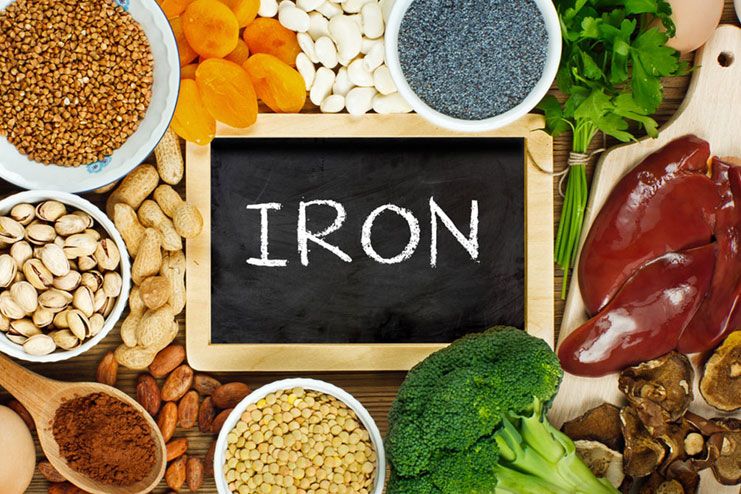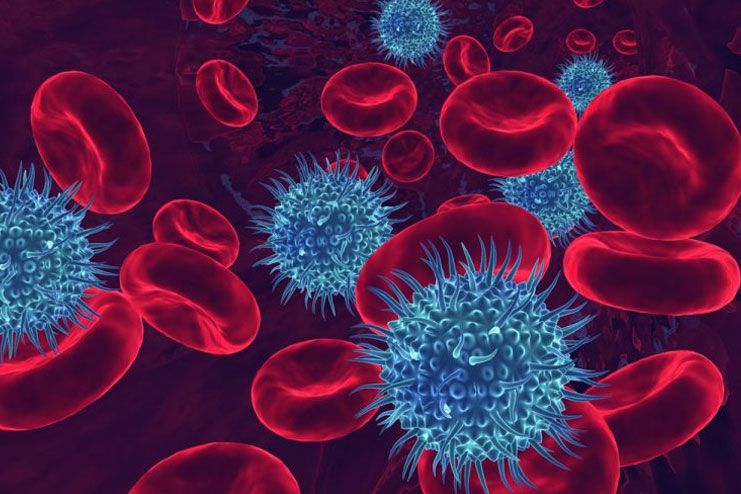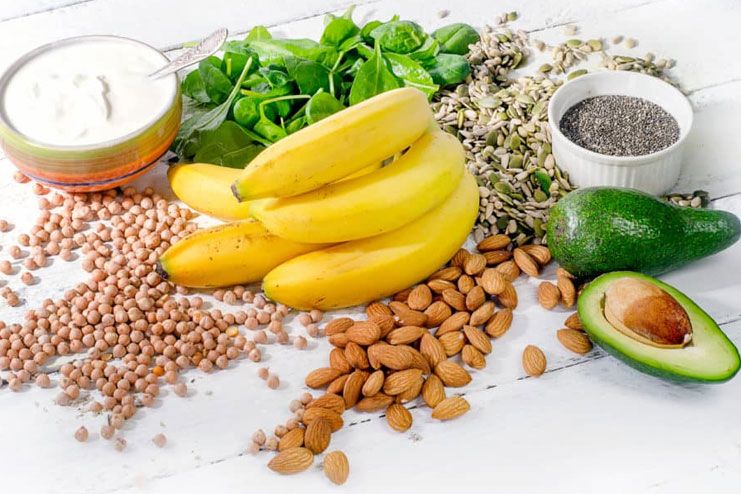Affiliate Disclaimer
Some links in this article are affiliate links. We may earn a small commission if you make a purchase through these links, at no extra cost to you. We only recommend products we find useful to our readersOxidative stress is caused by an imbalance between free radicals and antioxidants. It contributes to cellular damage and several health issues, such as inflammation, premature aging, and chronic diseases.
However, incorporating certain lifestyle habits and dietary practices can help reduce its effects. In this article, we will explore some practical ways to reduce oxidative stress to protect your body and improve your overall health.
What is Oxidative Stress?

Oxidative stress occurs when there’s an imbalance between free radicals and antioxidants in the body.
Free radicals are unstable molecules naturally produced during metabolic processes. They can also be formed due to external factors, like pollution, UV radiation, or smoking. Free radicals damage cellular integrity and thereby cause various diseases.
Antioxidants neutralize these free radicals to prevent cellular damage.
When free radicals form in excess of the body’s required levels, oxidative stress manifests. This leads to damage to cells, protein molecules, and DNA molecules.
In the long run, this damage causes aging, inflammation, and chronic diseases such as diabetes, heart disease, and neurodegenerative disorders.
Balancing free radicals and antioxidant levels is essential for preventing diseases and overall health.
What Causes Oxidative Stress

Several factors contribute to oxidative stress. Lifestyle habits are the primary factor that affects overall health, whether positively or negatively. Unhealthy lifestyle habits increase the levels of oxidative stress in the body.
Let us discover these critical factors that can lead to oxidative stress.
1. Consumption of Rancid Oils

Rancid oil contains oxidized fats and harmful byproducts from oil degradation. Consuming rancid oils over the years builds up oxidative stress (R).
These oxidized compounds generate free radicals that damage cellular structures such as membranes, proteins, and DNA.
Rancid oils deplete your antioxidant defenses by reducing and balancing excess free radicals. This eventually leads to inflammation, aging, and chronic health issues.
Fresh oils must be used and stored appropriately. Choose oils with high oxidative stability, like extra virgin olive or coconut oil.
2. Chronic Stress

Chronic stress causes oxidative stress by producing excess free radicals and decreasing the body’s antioxidant defense system’s ability to counteract them.
Under stress, your body releases hormones like cortisol and adrenaline. These hormones stimulate the production of unstable free radicals, which damage cells, proteins, and DNA molecules and cause inflammation.
This creates a cycle where oxidative damage and inflammation worsen each other, contributing to premature aging and the development of chronic health problems.
3. Lack of Antioxidants

Problems associated with excess free radicals in the body are common. If you have been consistently leading a poor lifestyle by eating unhealthy food and not indulging in physical activity, this can affect levels of oxidative stress in the body.
Ensure you consume enough antioxidants to balance the excess free radicals in the body.
The imbalance in the body’s ratio of free radicals to antioxidants is usually the cause of oxidative damage (R).
4. Smoking

Chronic smoking is one of the most common reasons behind oxidative stress, as it produces excess free radicals in the body (R).
Smoking reduces the amount of circulating antioxidants in the body. It damages lung function and increases the risk of oxidative stress (R).
5. Lack of Sleep

Lack of sleep or lack of a proper circadian rhythm impacts oxidative stress. A study (R) suggests that sleep deprivation is directly associated with disrupting the circadian rhythm increasing oxidative damage.
Exposure to blue light can also affect melatonin levels in the body, further impacting overall function and enhancing the risks associated with oxidative damage.
6. Excess Iron

Iron in excess affects the body’s antioxidant defenses and causes an imbalance.
Excess iron causes oxidative stress through the Fenton reaction. In this process, iron reacts with hydrogen peroxide in the body to produce highly reactive hydroxyl radicals. These radicals damage cellular components, leading to oxidative stress.
This increased oxidative damage causes inflammation, tissue injury, and the development of chronic diseases.
Symptoms of Oxidative Stress

The long-term impacts of oxidative stress are profound. This is why you must look for the signs and symptoms to prevent the condition from worsening.
Some noticeable symptoms of oxidative stress include:
- Fatigue
- Constant irritation
- Chronic diseases
- Inflammation
- Cancer (in the long run)
- Cardiovascular diseases
How to Reduce Oxidative Stress?
 Adopting a healthy lifestyle and dietary habits can reduce oxidative stress significantly. This helps you maintain health and resilience. Let’s find effective strategies to reduce and protect your body from oxidative stress.
Adopting a healthy lifestyle and dietary habits can reduce oxidative stress significantly. This helps you maintain health and resilience. Let’s find effective strategies to reduce and protect your body from oxidative stress.
1. Avoid Processed Foods

Processed foods and refined carbohydrates cause oxidative stress in the long run by increasing free radical production once digested. Added sugars and unhealthy fats in these foods are metabolized rapidly, which increases oxidation.
Frequent consumption of such unhealthy foods disrupts the body’s natural antioxidant defenses, increasing the effects of oxidative stress.
By reducing your intake of packaged and processed foods, you can reduce free radical levels in the body. This will protect your body cells and support your overall health. Opt for whole, nutrient-rich foods to prevent too much oxidative stress.
2. Exercise More Often

Exercising helps eliminate oxidative stress. When you first begin exercising, it increases free radical production. However, regular practice (R) enhances your natural antioxidant defense system over time. This will neutralize free radicals, reduce oxidative damage, and improve cellular health.
Try aerobic exercises, strength training, or yoga to improve antioxidant enzyme levels and overall health. Incorporate at least 30 minutes of moderate exercise for long-term protection against oxidative stress.
3. Consume More Vitamin C

Increase your vitamin C intake. Vitamin C is effective because it is rich in antioxidative properties. This keeps the body’s levels of free radicals in check.
The antioxidative property also helps curb the impacts of reactive oxidative stress in the body, thus helping with the condition.
Lemons, berries, broccoli, cabbage, snow peas, papaya, and pineapple are among the best sources of vitamin C.
4. Curb Infections

Infections (R) are yet another common cause that disrupts your overall well-being and immunity.
Consuming more fruits and vegetables and increasing the consumption of foods rich in antioxidants can help curb oxidative stress.
5. Consume More Mushrooms

Mushrooms significantly enhance the body’s overall antioxidant levels. The main antioxidant in the mushrooms (R), ergothioneine, is one of the most powerful and effective antioxidants in preventing the risks associated with cancer and HIV.
It is highly active when the body’s oxidative stress levels are at their peak, thus preventing risks. Oyster mushrooms contain the maximum amount of ergothioneine.
6. Consume More Beta-Carotene

Beta-carotene, a pro-vitamin A, has been found to have amazing effects on reducing oxidative stress (R).
However, be careful with the amount of beta-carotene you consume. Excessive beta-carotene in the bloodstream can cause issues like carotenemia.
Some of the best sources of beta-carotene include carrots, squash, and sweet potatoes.
7. Manage Stress

Stress is one of the most common reasons for worsening oxidative stress (R). It is important to focus on your overall well-being. You need to get rid of the chronic stress that has been building up.
Several lifestyle changes will help in managing stress effectively. Opt for meditation to boost your mental health and get rid of the stress to further help in the treatment of oxidative stress.
If the physical ways don’t work, you can also opt for talking and confiding in a friend, which has been found to have a remarkable impact on one’s health.
8. Consume More Cinnamon

Several spices, including cinnamon, help reduce oxidative stress due to their high antioxidant content (R).
Cinnamon positively affects blood sugar management by improving insulin sensitivity and lowering excess blood sugar levels. Therefore, individuals with low blood sugar should avoid cinnamon.
9. Add Vitamin E

Vitamin E enhances the production of healthy red blood cells. It further boosts an individual’s overall well-being and helps reverse oxidative stress (R).
Vitamin E has also been found to help with cell bioactivity, which further helps prevent the risks of increased oxidative stress in the body.
Consume 15 mg of vitamin E daily. Increase your intake of spinach, Swiss chard, tomato soup, avocados, and other rich sources of vitamin E.
10. Enhance Magnesium Intake

Magnesium helps control oxidative stress (R) by supporting antioxidant enzymes, such as glutathione peroxidase.
They neutralize free radicals and protect mitochondria from damage. Natural food sources of magnesium are beans, pumpkin seeds, and Swiss chard.
11. Consume Green Tea

Green tea (R) has amazing effects on the signs and symptoms associated with oxidative stress.
Green tea is loaded with antioxidants and catechins, which help the body handle excess free radicals and eliminate the associated problems.
Conclusion
Reducing oxidative stress is the key to not just maintaining cellular health but also preventing many chronic diseases.
Make some important lifestyle changes to prevent oxidative stress and protect yourself. These include consuming antioxidant-rich foods, exercising regularly, managing stress, and avoiding processed foods.
With these simple and effective habits, you can help build resilience and improve overall health in the long run.
-
July 2019Written by Somapika D
-
Dec 2024Edited by Lakshmi Gayatri
In this Article



















